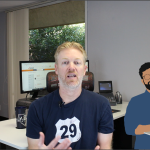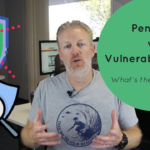Be safe and secure on the internet with a VPN and unlock blocked sites and services!
A VPN is extremely useful and essential if you travel with a laptop computer, tablet or smartphone … and who doesn’t these days?! It can be used by both private users and businesses; however, in very different ways. Whether you’re on a wi-fi connection or anonymously browsing the internet, someone is always watching you! Read more to learn about how VPNs can keep you and your information safe and secure.
A VPN connects two computers securely and privately over the internet, even though that is a public network. A VPN client on one computer connects to a VPN server on another computer and by using encryption and other security measures, no one can see what information is being exchanged. VPNs aren’t just for businesses, and because the connection is private and secure, another use is to access the internet anonymously. Anyone that wants to protect their privacy and security online should definitely use a VPN. Everywhere online, someone is tracking your activities!
If you use a laptop, tablet or smartphone, which I’m sure you do, at a public wi-fi hotspot like a Starbucks or hotel, your activities could be monitored and private information and passwords could be collected. Online shopping and banking could also compromise your safety and privacy because of the open nature of the wi-fi network and watch out! Who knows if one of the people around you could possibly be a hacker! A VPN boosts security because eavesdroppers cannot make sense of your encrypted communications.
How do VPNs Work?
VPNs generally make use of a client and a server. A client program is run on your own computer, tablet or smartphone and it connects to a server to establish a secure and private link. When you run a web browser and enter a website URL, the request is sent to the VPN server. The server requests the web page from the site and sends it back to you.
If the website tries to work out who you are and where you live, it queries the computer that requested the web page, but that was the VPN server, not you. If the server is located in theUSand has a US IP address for example, the website sees the request coming from a US resident.
Communications between the server and your computer are encrypted—so someone spying on you wouldn’’t know which website you access and can’t see private information like passwords, usernames, bank or shopping details. Those are kept private for a reason…keep it that way! A VPN can be turned on and off as and when you need it.







